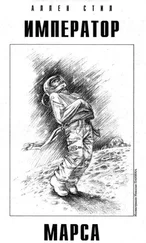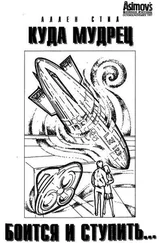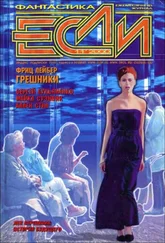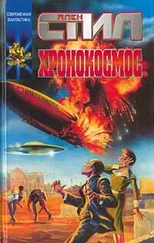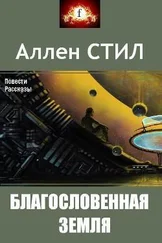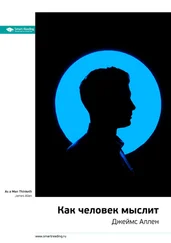Аллен Стил - Arkwright
Здесь есть возможность читать онлайн «Аллен Стил - Arkwright» весь текст электронной книги совершенно бесплатно (целиком полную версию без сокращений). В некоторых случаях можно слушать аудио, скачать через торрент в формате fb2 и присутствует краткое содержание. Год выпуска: 2016, Жанр: Эпическая фантастика, на английском языке. Описание произведения, (предисловие) а так же отзывы посетителей доступны на портале библиотеки ЛибКат.
- Название:Arkwright
- Автор:
- Жанр:
- Год:2016
- ISBN:нет данных
- Рейтинг книги:4 / 5. Голосов: 1
-
Избранное:Добавить в избранное
- Отзывы:
-
Ваша оценка:
- 80
- 1
- 2
- 3
- 4
- 5
Arkwright: краткое содержание, описание и аннотация
Предлагаем к чтению аннотацию, описание, краткое содержание или предисловие (зависит от того, что написал сам автор книги «Arkwright»). Если вы не нашли необходимую информацию о книге — напишите в комментариях, мы постараемся отыскать её.
Convinced that humanity cannot survive on Earth, his Arkwright Foundation dedicates itself to creating a colony on an Earth-like planet several light years distant. Fueled by Nathan’s legacy, generations of Arkwrights are drawn together, and pulled apart, by the enormity of the task and weight of their name.
Arkwright — читать онлайн бесплатно полную книгу (весь текст) целиком
Ниже представлен текст книги, разбитый по страницам. Система сохранения места последней прочитанной страницы, позволяет с удобством читать онлайн бесплатно книгу «Arkwright», без необходимости каждый раз заново искать на чём Вы остановились. Поставьте закладку, и сможете в любой момент перейти на страницу, на которой закончили чтение.
Интервал:
Закладка:
“Are you going to the funeral?” Kate asked.
A pause. “No.”
“Mom—”
“You can go if you’d like. Maybe there’ll be someone you’ll know.”
Kate knew what her mother meant by this. Her grandmother had passed away before she was born; so as far as she knew, there were no other living members of his immediate family. “It would have been nice if you’d told me.”
“I didn’t find out until his agent called.” Her tone hardened even further. “Her name’s Margaret. Tell her I said hello.”
Until she said that, Kate hadn’t given much thought to attending her grandfather’s funeral. Grandpapa was very nearly a stranger, a member of her family in name only. But her mother’s indifference resolved the matter; she’d make the trip to Lenox because Nathan Arkwright’s only child refused to do so.
“I will,” she said.
“Very well, if you think must. Let me know if he left us anything. I kind of doubt it, but he might.”
“I—” Kate bit off a response that wouldn’t have done either of them any good. “Bye, Mom,” she said instead, and she hung up.
Chapter 2
Kate’s trip to Vermont had been to do research for a magazine article she was writing about a nuclear power plant near Brattleboro that the local residents wanted to shut down. The only thing she had in common with her grandfather was that she, too, was a writer, although she’d chosen freelance science journalism instead of science fiction. She spent the rest of the day transcribing the interview tapes and incorporating them into her piece, but she took a break to make a call to The Berkshire Eagle and find out from the obits desk the place, date, and time the funeral service would be held. Kate’s editor agreed to push back the deadline a few days to let her make the trip—indeed, he was impressed to learn that she was related to the Nathan Arkwright and even tried to talk Kate into writing a story about it. Kate told him she’d think about it, which was a polite way of saying no, and the next day she put on a black dress, got in her car, and drove west on the Massachusetts Turnpike into the Berkshires.
Although Nathan Arkwright had been an atheist, the funeral was held in a Congregational church. Kate would later learn that the pastor was big fan of Nathan’s and had practically begged for the honor of hosting the memorial service. Thanks to GPS, Kate had little trouble locating the church; parking was another matter entirely. She wished that she’d left home earlier; both sides of the street were lined with cars for three blocks, with local police officers directing traffic.
The church was a big Gothic edifice built sometime in the 1800s, but by the time Kate got there, its oak pews were packed tightly, and people were standing against the walls. Nathan Arkwright may not have had much in the way of an immediate family, but he made up for it with fans, some of whom were apparently unaware of the proper way of dressing for a funeral; amid the dark suits and dresses, she spotted a few dress uniforms of the Galaxy Patrol, mainly worn by people who wouldn’t have lasted a week in the Galactic Academy. Many had brought copies of the Patrol novels as if expecting the author to rise from his casket and give one last signing before he went off to the crematorium.
The casket itself rested in front of the nave, surrounded by so many wreaths and bouquets that every florist in town had probably been cleaned out. Its lid was closed, for which Kate was quietly grateful—she’d never been able to stand the sight of a dead body, even one tastefully arranged by a mortician—and instead a portrait photo of her grandfather was propped up on an easel. It was the same picture that had appeared on the dust jacket of every book Grandpapa published since 1972: Nathan Arkwright, a thick-set, red-haired man in his early fifties, smiling slightly as he regarded the prospective readers from behind wire-rimmed glasses with eyes both kindly and wise. Not the annoyed glare he’d given his granddaughter when she’d come to visit him.
The ushers were beginning to turn people away when Kate arrived, but when she quietly explained that she was a family member, she was escorted down the center aisle to the two front pews, which had been roped off with a red velvet cord. A few people were already seated in this section, older folks whom Kate recognized as distant cousins whom she barely knew; they nodded to her, not really recognizing her, either. She sat down by herself in the first pew and looked around. As she’d expected, Sylvia Morressy had made good her promise not to attend her father’s funeral.
Once again, Kate wondered what her grandfather had done to earn his daughter’s hatred. She’d never said what it was that had caused her to avoid her father or to keep Kate away from him as much as possible. Even Kate’s father didn’t know why; Kate’s mother filed for divorce before she ever gave him a satisfactory explanation.
The pastor had just emerged through a side door and was preparing to step up to the pulpit when four people approached the front pew. The youngest was a middle-aged man Kate recognized as Grandpapa’s housekeeper; she remembered that his name was Mr. Sterling, and he looked very nearly the same as he had when she’d met him years earlier. The other three were two men and a woman, Grandpapa’s age or thereabouts; one of the men sat in a wheelchair pushed by Mr. Sterling.
The usher who’d escorted Kate to her seat hurried up to meet them. As she watched, he quietly explained that the section was being reserved for family members. The woman—thin, petite, and silver haired but nonetheless bearing an inarguable presence—looked him straight in the eye and said something that Kate couldn’t hear but which caused the younger man to hastily apologize. He pulled aside the cord and helped Mr. Sterling assist the woman and the taller of the two men into the pew; the man in the wheelchair remained seated in the aisle.
Kate didn’t have the foggiest notion who they were, but it seemed as if the woman immediately recognized her; when she turned to glance at Kate, there was a look of surprise on an otherwise stoical face. The tall man—gaunt and gray, with jug ears and a nose like a beak—barely noticed her, but the man in the wheelchair, who’d lost most of his hair but still sported a trim white mustache, studied Kate as if trying to place her.
The woman stared at Kate so intently that it made her uncomfortable. Kate nervously looked away, but she could feel the old lady’s eyes upon her. Kate was about to introduce herself when the pastor mounted the steps to the pulpit. An expectant hush fell upon the church, and Kate decided that any conversation would have to wait until later.
The opening prayer was ecumenical, and the hymnals remained untouched in their pew pockets, with the congregation instead invited to stand and sing the Galaxy Patrol theme song from the original TV series, the lyrics of which were conveniently printed in the program everyone had been handed upon walking in. Kate felt silly singing a song once popular on grade-school playgrounds, but apparently it was a bittersweet moment for many of the people seated behind her; she heard quiet sobs and choked voices when they reached the line “We boldly set forth for the stars,” and she glanced back to see people dabbing tears from their eyes. Whose idea was this? Still, she had to admit, it was more suitable than “Amazing Grace” or “Shall We Gather at the River.” Grandpapa was famously nonreligious.
The pastor’s sermon was much like The Boston Globe obit, both respectful and impersonal. While it was clear that the pastor had met Nathan Arkwright and admired him, he didn’t know him well enough to say anything reflecting anything more than a passing acquaintance. Instead, the pastor spoke of his novels and stories and how they’d entertained and inspired generations of readers. He said that Nathan had preferred solitude, particularly after his wife, Judith’s, death, but he added that his correspondents had included scientists, authors, astronauts, and celebrities who’d been inspired by his books. He read bits from messages he’d received from famous people: a former NASA chief administrator, an Apollo moonwalker, the actor who’d portrayed Hak Tallus in the Galaxy Patrol movies. He ended the service by reading a passage from Grandpapa’s last novel, Through the Event Horizon —a book that had made the New York Times Best Seller List and stayed there for nearly three months—which once again provoked sighs and tears from the congregation.
Читать дальшеИнтервал:
Закладка:
Похожие книги на «Arkwright»
Представляем Вашему вниманию похожие книги на «Arkwright» списком для выбора. Мы отобрали схожую по названию и смыслу литературу в надежде предоставить читателям больше вариантов отыскать новые, интересные, ещё непрочитанные произведения.
Обсуждение, отзывы о книге «Arkwright» и просто собственные мнения читателей. Оставьте ваши комментарии, напишите, что Вы думаете о произведении, его смысле или главных героях. Укажите что конкретно понравилось, а что нет, и почему Вы так считаете.



